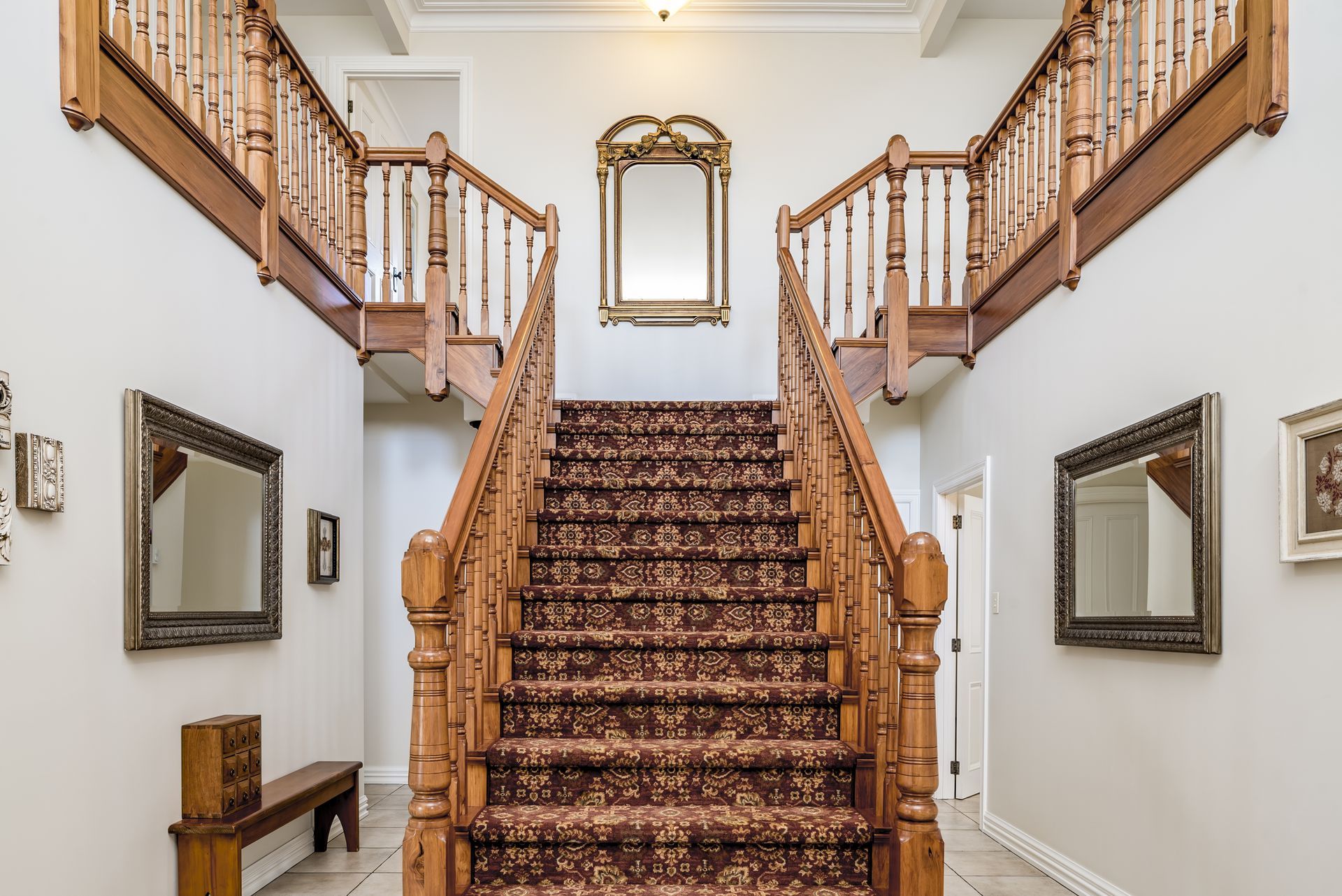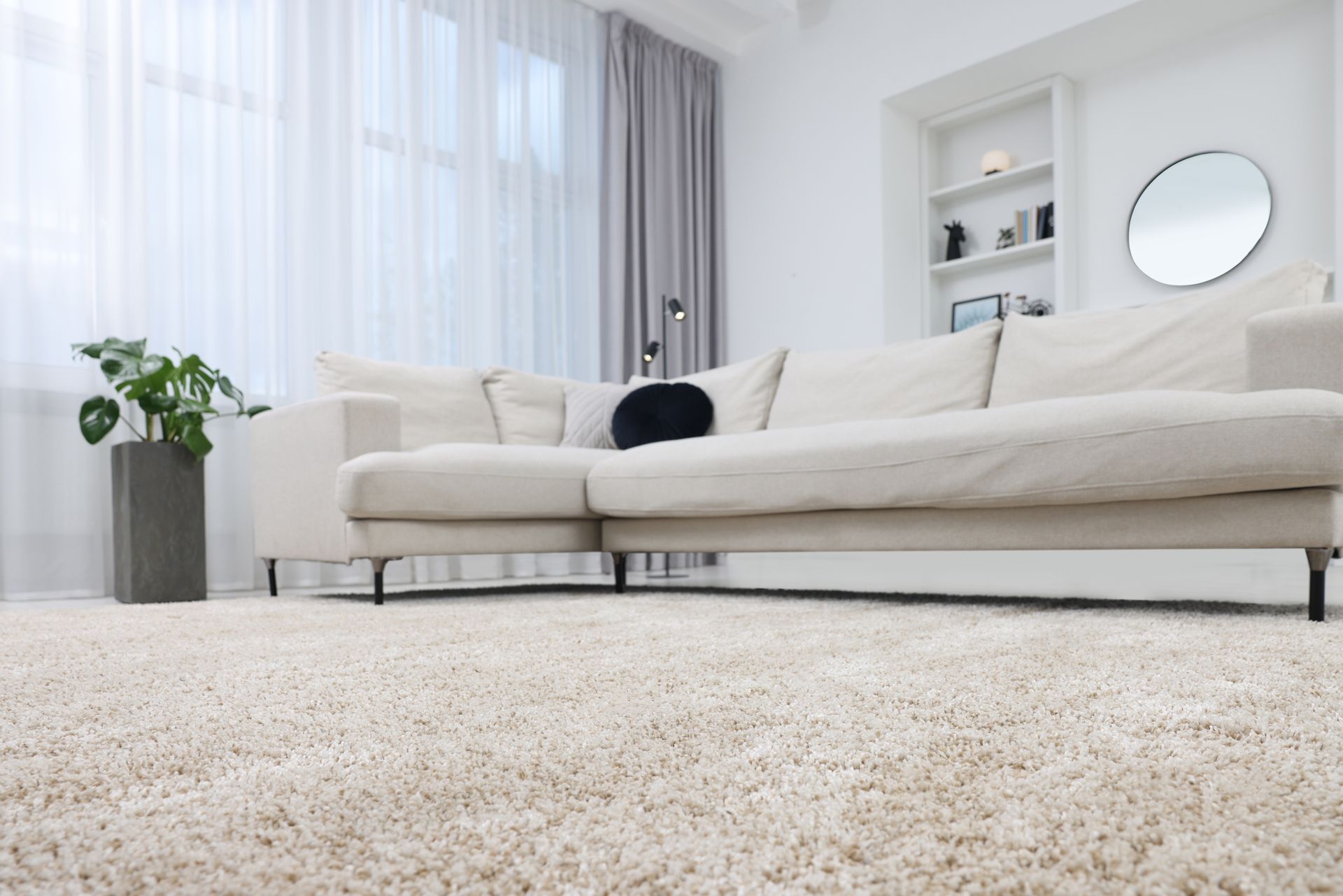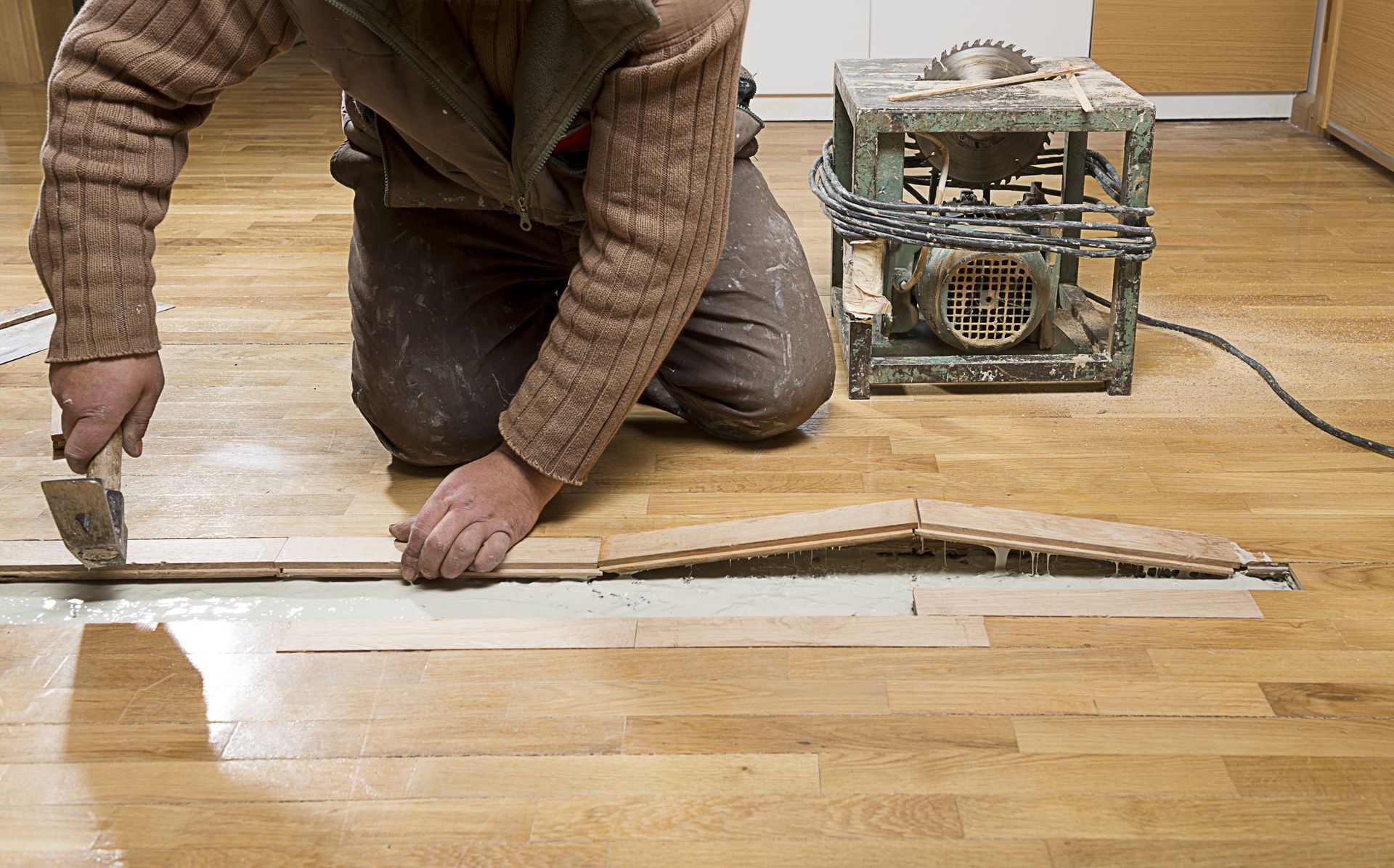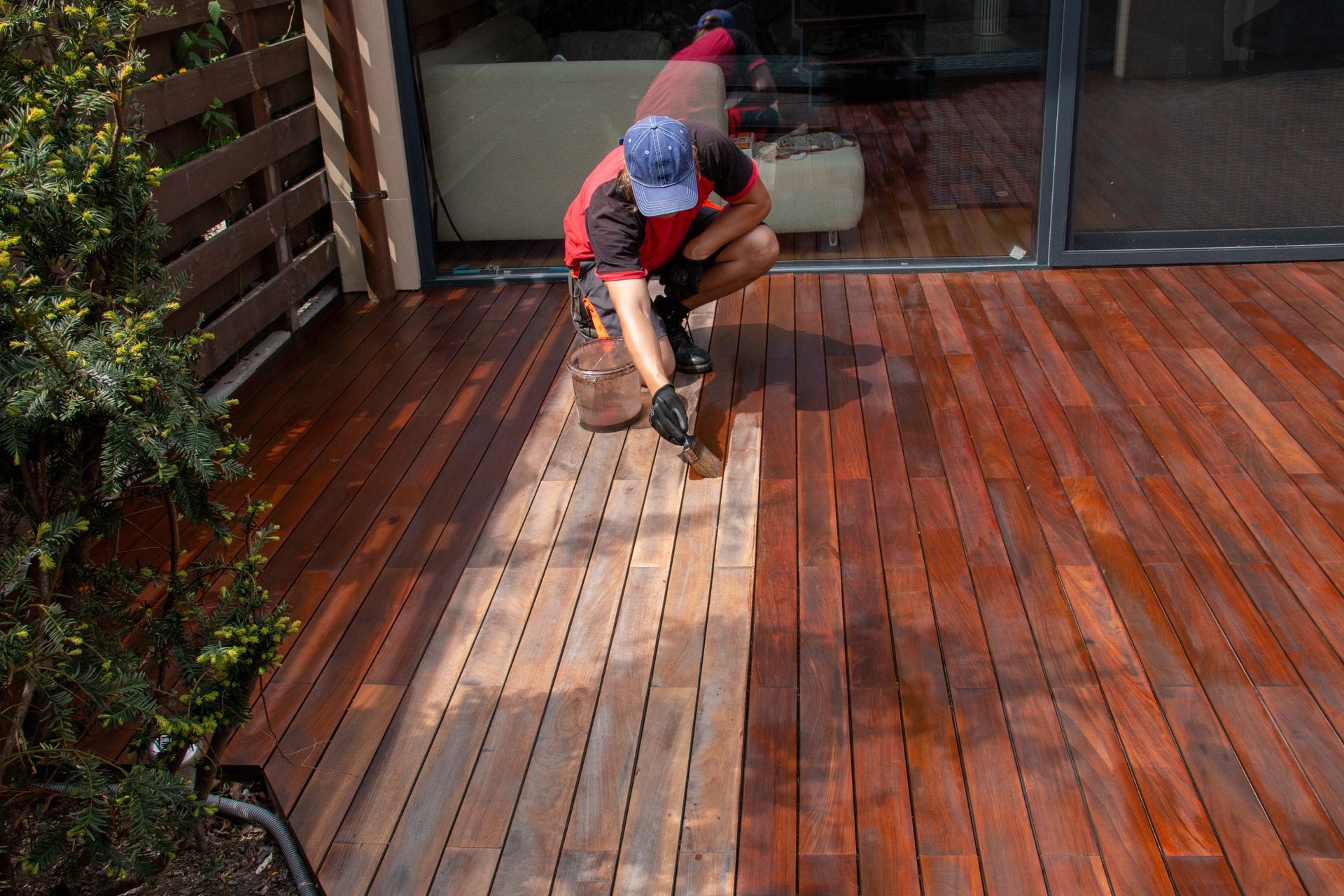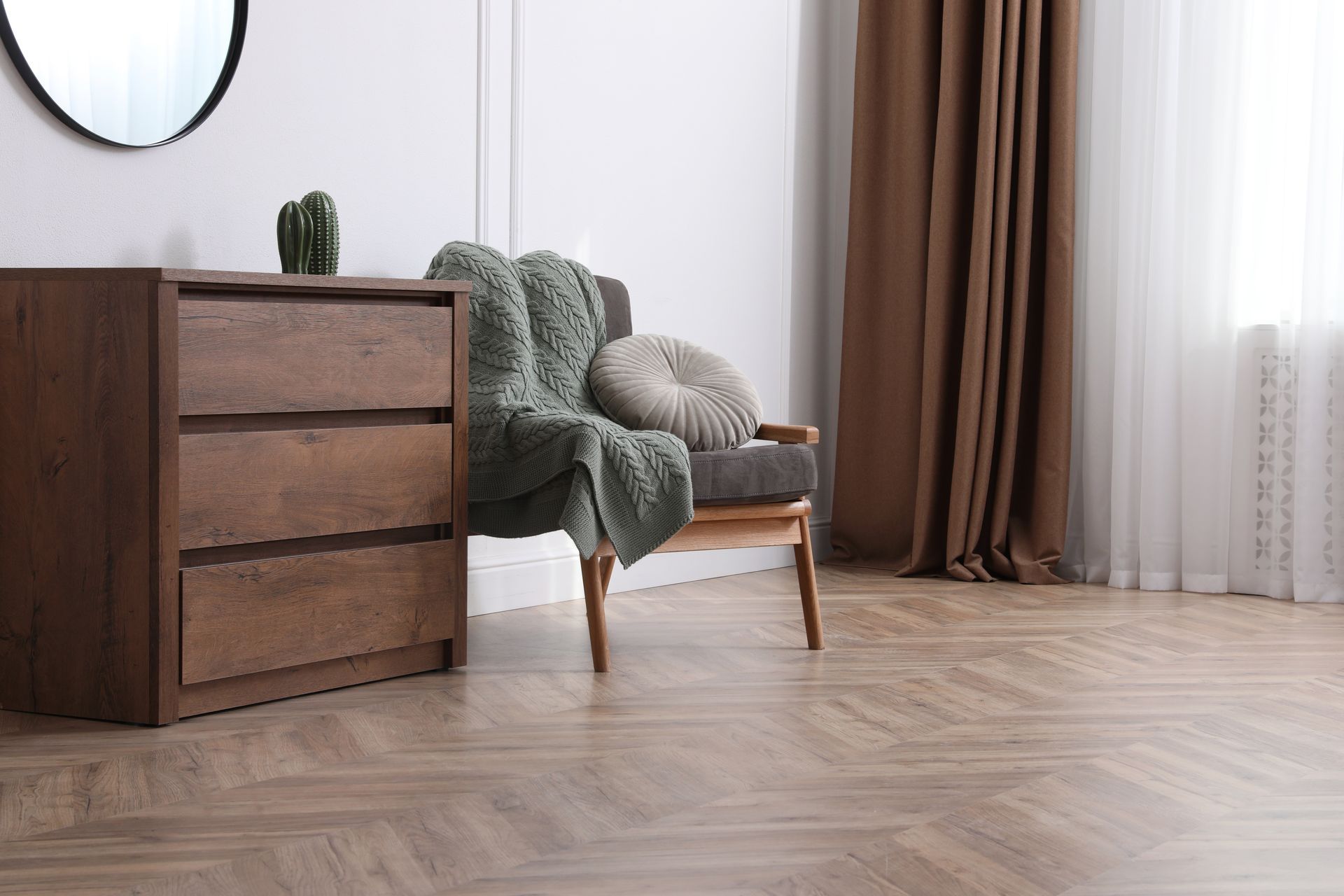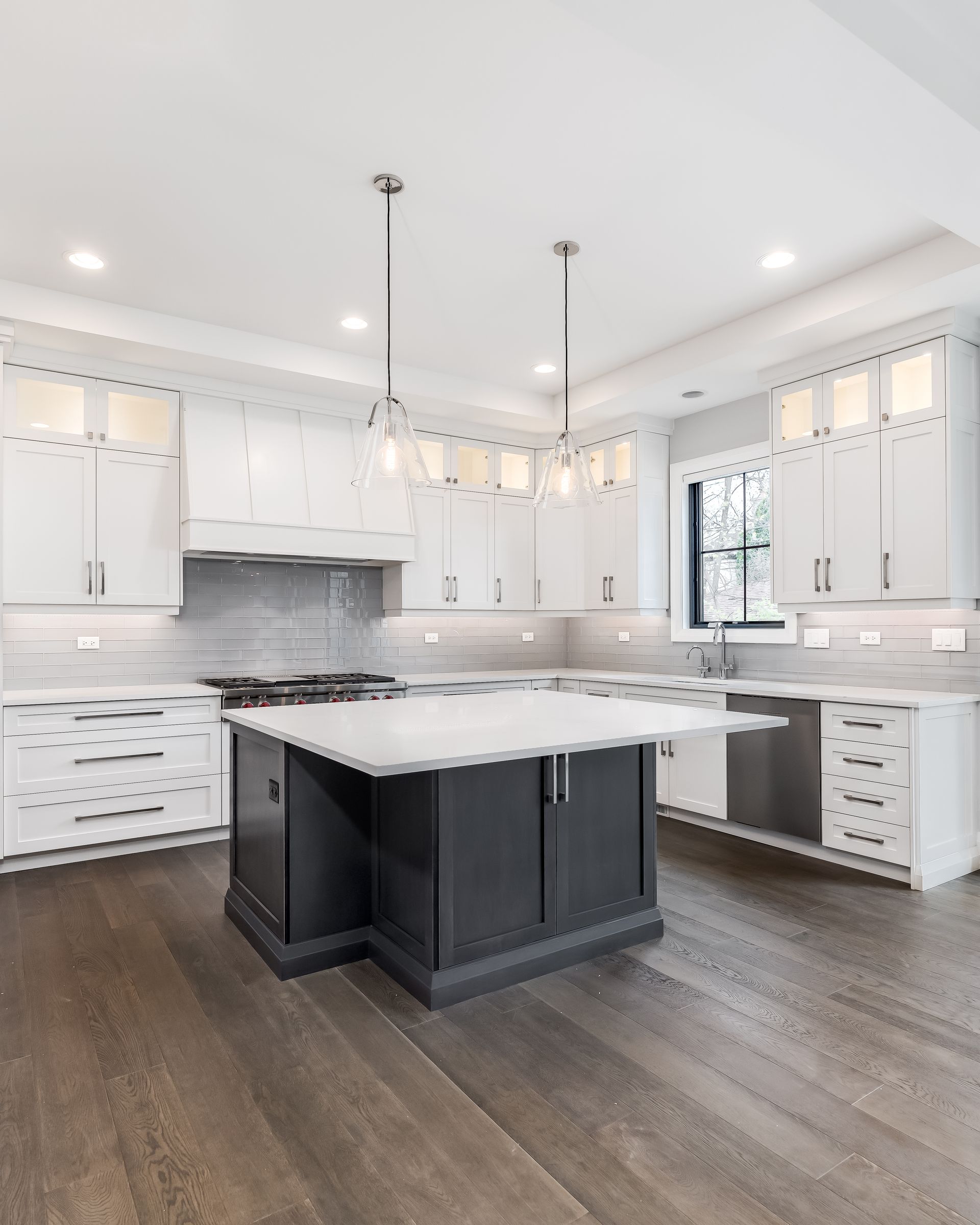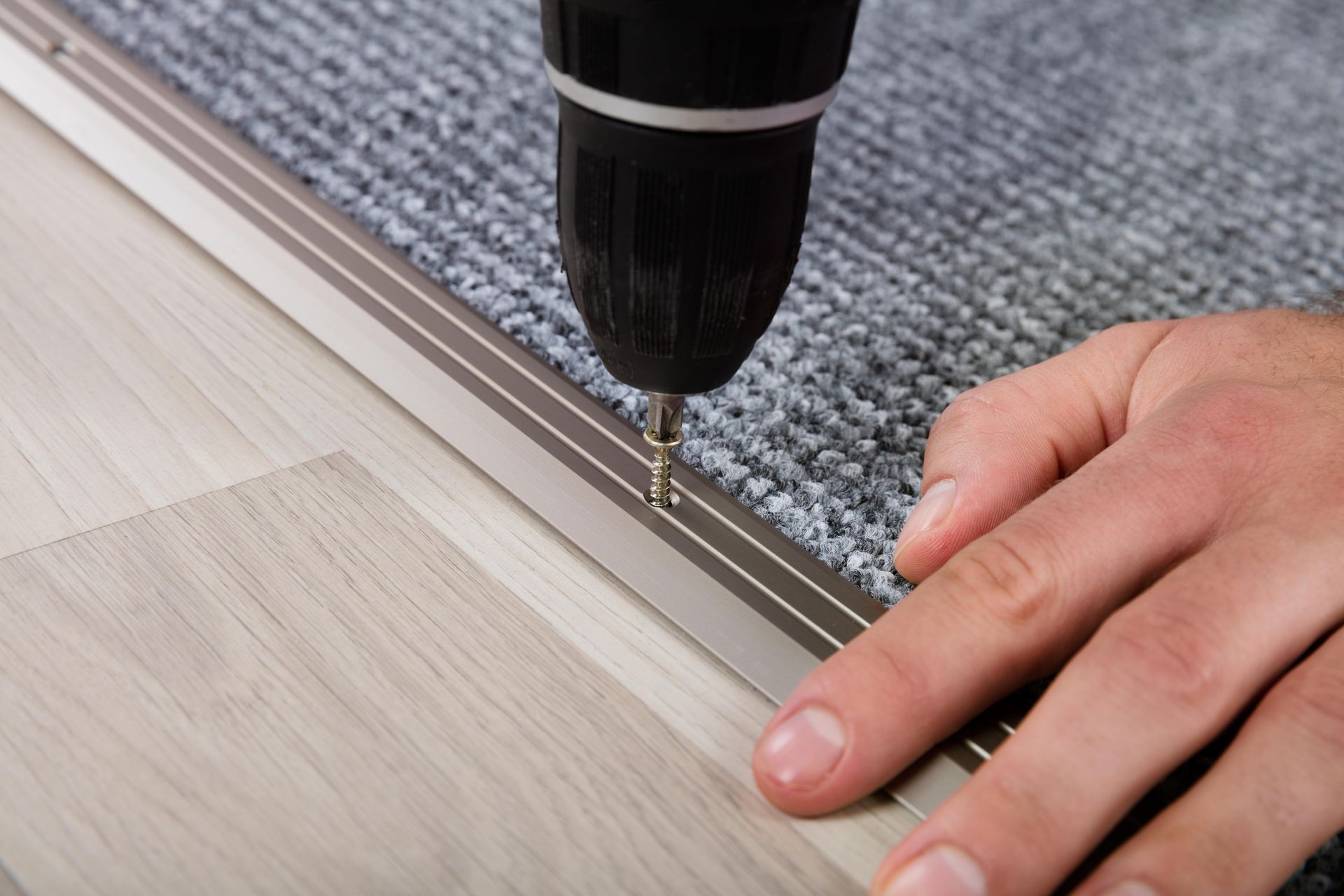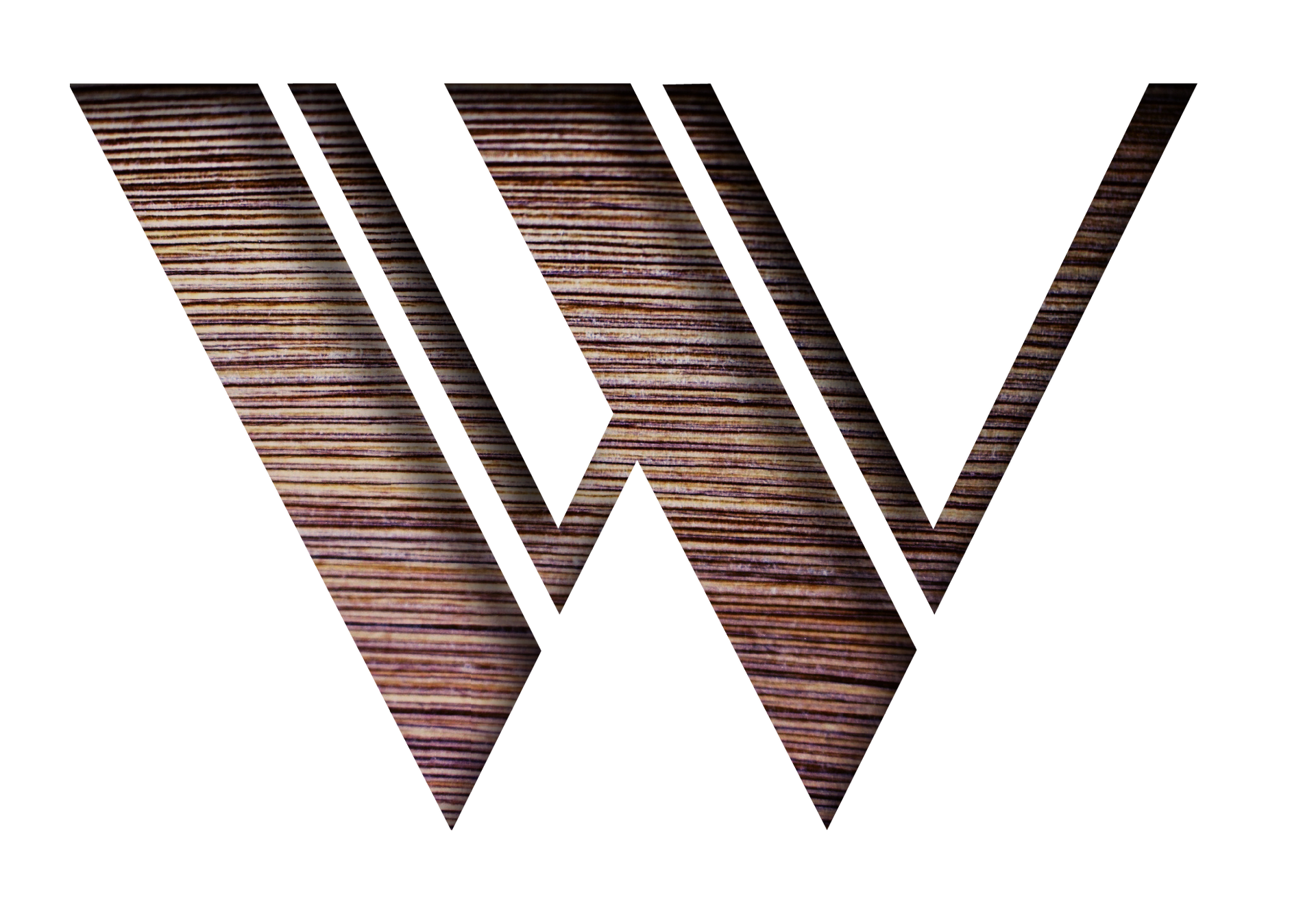Hardwood vs. Vinyl Flooring (Pros and Cons)
Whether you are building a new home or doing a renovation, installing a new floor can be incredibly exciting. With that said, there are a ton of flooring options out there for homeowners today so choosing the perfect material can be a bit overwhelming.
In the United States, hardwood and vinyl are two of the most popular flooring materials used in residential and commercial buildings. Because both vinyl and hardwood have advantages and disadvantages, many of our homeowners find themselves debating which route to go.
This is where we come in. Walnut Hardwood LLC is a Denver, Colorado-based contractor dedicated to helping our neighbors install the perfect flooring for their home. To better understand the differences between hardwood and vinyl flooring, we’ve put together this article to explain each materials’ distinct advantages and disadvantages.
What is the Difference Between Hardwood and Vinyl?
Okay, first things first, let’s define both hardwood flooring and vinyl flooring to clear up any initial confusion you may have.
Hardwood Flooring
Hardwood Flooring (also known as simply “ Wood Flooring ” ) typically refers to solid hardwood planks that are installed with nails and staples. Solid hardwood planks are milled from a single piece of timber. They are more expensive and laborious to install but offer beauty, durability, and longevity. In fact, many American homes, built in the early to mid-20th century, still have their original hardwood floors.
While exploring hardwood flooring you may have also come across engineered hardwood . Engineered hardwood is composed of compressed plywood or high-density fiberboard with a thin veneer of hardwood on top. Unlike solid hardwood, only that top later will be actual hardwood. You can find veneers in many different species from white oak to maple and hickory. Depending on the thickness of the hardwood veneer, some engineered floors can be refinished, however many cannot. This type of flooring offers the look of hardwood without the laborious sanding, staining, and finishing necessary for raw solid hardwood.
Vinyl Flooring
Vinyl flooring comes in a couple of different styles, sheet vinyl which is glued down, and luxury vinyl planks (LVP) or tiles (LVT) which typically click and lock together and can be installed as floating floors. You may remember the vinyl floors your parents or grandparents had in their kitchen, but the vinyl today has come a long way.
As printing technology advances, the imaging on these luxury vinyl floors is becoming more and more detailed. When considering vinyl flooring, we suggest limiting your choices to LVP or LVT type vinyl because it is more durable and lasting than vinyl sheets. Not only do LVP/LVT look like hardwood or stone they are also textured to feel like these surfaces as well. However, the similarities stop there because vinyl is made completely out of synthetic materials.
Most LVP or LVT are constructed with 4 layers :
- Bottom layer: Cork or foam which helps soften your step and provides underlayment for the vinyl floor, something you’d be responsible for buying if it wasn’t included.
- The CORE: made from wood plastic composite (WPC) or stone plastic composite (SPC) both are waterproof and durable.
- The printed vinyl layer: made to look like hardwood and stone, quality products offer highly realistic prints
- Protective wear layer: engineered to protect against standing liquids, dog nails and children, wear layers are measured in mil (thickness measurement that equals one thousandth of an inch). Look for products with 12-20 mil wear layers. The thicker the layer the more durable and scratch resistant the floors will be.
With vinyl flooring it is good to keep in mind that the price per square foot usually correlates directly with the quality of the product.
Which is Better: Hardwood or Vinyl Floors?
To best answer this question, here are some of the most common advantages and disadvantages of both hardwood and vinyl flooring.
Hardwood Flooring Pros
- Longer Lifespan
- Unique, natural design characteristics
- Higher Added Home Value
- Ability to Refinish and Repair
- Renewable Resource
- Great Home Insulation
Hardwood Flooring Cons
- More Expensive To Install
- Higher Maintenance
- Can Be Damaged Due to Radiant Heat
- Highly sensitive to moisture. Can be easily damaged by water.
Vinyl Flooring Pros
- Cheaper to Install
- Easy to Install
- Water-resistant or Waterproof
- Not Damaged By Radiant Heat
- Less Maintenance required
Vinyl Flooring Cons
- Shorter Lifespan
- Planks Must Be Replaced, Rather than Repaired
- Little Impact on Home Value
- Synthetic, Non-Renewable Material (Made From Petroleum)
- May Emit Volatile Organic Compounds (VOC)
- Cannot Be Refinished
Key Comparisons
Now that we’ve covered the pros and cons of vinyl and hardwood flooring, let’s take a look at how these materials stack up against each other in a few key categories.
Upfront Cost
First and foremost, vinyl flooring is much less expensive to install than hardwood. If you have a tight budget and need a new floor, vinyl may be the best option.
Installation
Secondly, vinyl flooring is considerably easier to install than hardwood flooring. If hiring a professional, this will save you on labor costs. If you’re going the DIY route, vinyl flooring is much easier to properly install for an inexperienced craftsman.
Maintenance
In general, vinyl planks are rarely repaired, but rather replaced if they become damaged. With that said, vinyl flooring is very liquid-resistant and generally easy to clean and maintain and may be a great option for kitchens, bathrooms and laundry rooms.
On the other hand, hardwood floors can be refinished to either repair or update their look. More upkeep is required with a hardwood floor, but maintaining your investment is not difficult with the right products and habits. For more information, feel free to read our article on how to clean hardwood floors.
Return On Investment
Here, hardwood flooring shines as a better overall return on investment than vinyl flooring. Not only do hardwood floors last longer, but they also add a considerable amount of resale value to your home. If you end up selling your property, then a beautiful hardwood floor is more likely to increase the market value and attract potential buyers to your home.
Impact on The Environment
Lastly, although it may not be a direct factor in your decision, it is important to consider a floor’s effect on the environment. As vinyl flooring is made of petroleum and plastic, it comes from a limited resource that has detrimental environmental effects. With that in mind, many modern vinyl floors are LEED certified with limited volatile emissions.
On the other hand, the all-natural timber used in hardwood floors can be found in a variety of tree species. Today, certifications from organizations such as the Forest Stewardship Council (FSC) indicate that the materials have been sustainably sourced.
Conclusion
At the end of the day, both hardwood and vinyl flooring can be installed to create a beautiful living space in your home or office. Whereas vinyl flooring is less expensive to install and generally easier to maintain, hardwood flooring is generally seen as a better long-term investment.
If you are having trouble deciding which kind of flooring is best for you, feel free to contact us today. Based in Denver, Colorado, Walnut Hardwood LLC is here to answer questions and help explore your flooring options!

